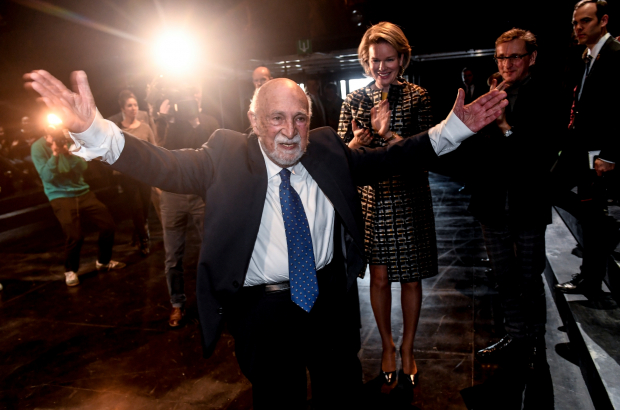- Daily & Weekly newsletters
- Buy & download The Bulletin
- Comment on our articles
Cross-border chorus recalls incredible bravery of 20th Convoy escape
Safely distanced in their own homes, 150 Belgian and British singers have recorded an aria that commemorates a remarkable feat of wartime resistance in Flanders.
The singers are all cast members of Push, an opera based on the story of the notorious 20th Convoy, which carried 1,600 deportees from the Dossin Barracks in Mechelen to Auschwitz in 1943. Thanks to the courage of three local Resistance fighters, 118 of the prisoners escaped and survived. One of them was Simon Gronowski from Brussels, aged just 11, who was pushed off the train by his mother.
When British composer Howard Moody met Gronowski in 2013, he was inspired to write his opera, which brings together a chorus of adult and child singers with professional soloists and orchestras. It premiered in the UK in 2016 and was later performed at Brussels opera house De Munt, in the presence of King Filip and Queen Mathilde. It has been performed many times since, with different soloists and choruses.
This week, singers from the two countries have united to form a virtual choir, singing the finale “Ma Vie n’est que Miracles” (My Life is Only Miracles). The various recordings are being edited together and will be released on April 19, the 77th anniversary of the escape, via Moody’s Facebook page.
“It’s a dream come true to find a way to bring four casts together from Belgium and the UK to make a virtual video of the last scene of Push,” Moody says.
“Simon’s story brings us all together – his instinctive bravery as a child, the courage of his mother and his personal journey that now enables him to express optimism, despite the tragedy that his own family and the millions of Jewish people who didn’t escape the train suffered. The generosity of the members of the Resistance who stopped the train is mirrored today in the struggles of so many health workers who risk their own lives to save the lives of others.”
The audacious rescue was carried out by Dr Youra Livchitz, Robert Maistriau and Jean Franklemon, who held up the train armed only with a fake emergency lantern, some wire-cutters and an old pistol, allowing a handful of prisoners to escape.
As the train moved off again, the men in young Simon’s carriage managed to open the doors, he told Flanders Today in 2018. “My mother woke me up and took me to the door, lowered me down on to the running board and, when the train slowed down, I jumped.” In all, 233 people escaped; 26 of them were killed and 89 recaptured.
“I ran all though the night in the woods,” Gronowski recalled. “I got help from some brave people who were risking their own lives to save me. For the next 17 months, I was taken in by Catholic families who kept me hidden and saved my life.” His mother and sister were both killed in the gas chambers of Auschwitz-Birkenau, and his father died in 1945. Livchitz was arrested and executed in 1944.
Photo: Simon Gronowski, now 87, at the Belgian premiere of Push in Brussels in 2019
© Belga/Dirk Waem

















